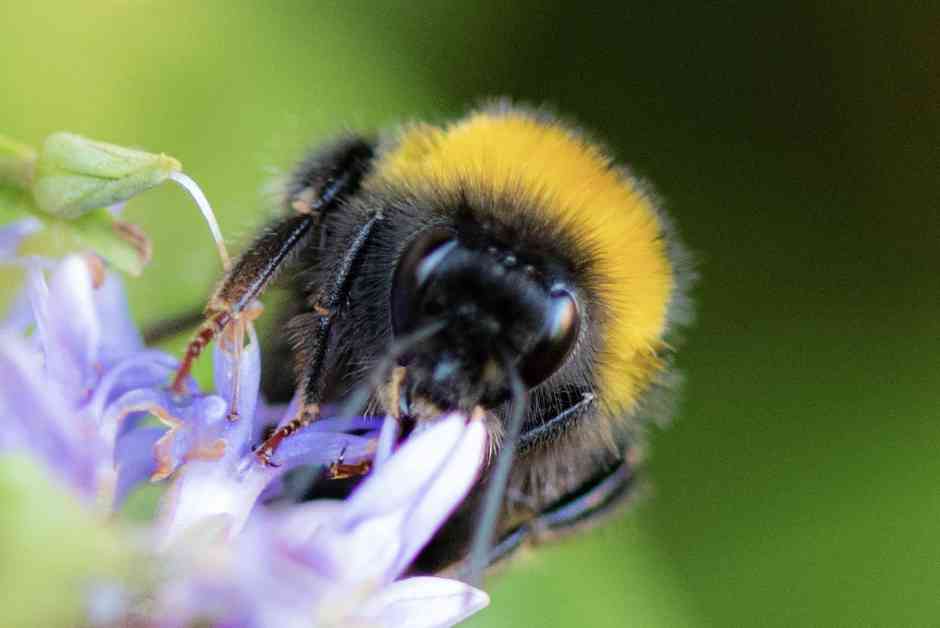Bumblebees: More Than Meets the Eye
Bumblebees, those busy little pollinators we often see flitting from flower to flower, may not be as simple-minded as we once believed. Recent studies have revealed that these buzzing insects may possess cognitive abilities previously thought to be unique to humans. Researchers at the University of Stirling have delved into the intricate workings of bumblebee minds, shedding light on their thought processes and memory capabilities.
Fuzzy Thinking Unveiled
It turns out that bees are not immune to bouts of forgetfulness. Just like humans, bumblebees have been found to experience memory lapses, a phenomenon previously unrecognized in the insect world. The study conducted by psychologists at the University of Stirling involved presenting wild bumblebees with various stimuli to gauge their memory and cognitive functions. Surprisingly, the results indicated that these tiny creatures were capable of misremembering key details, a behavior typically associated with human episodic memory.
The Memory Test
In a series of experiments, bumblebees were exposed to colored objects infused with sugary sucrose, such as orange strips of paper or yellow, rounded sticks. After a brief interval, the bees were presented with four objects: one they had seen before, one combining features of the previous objects, one with only a single feature, and a completely new object. The bees then had to choose which object to explore in search of the sucrose reward.
Interestingly, the bumblebees often gravitated towards the original object containing the sucrose, but they also made mistakes by selecting similar objects of different shapes or colors. These memory errors mirrored the type of mistakes humans make in similar tasks, highlighting a striking similarity in memory processes between bees and humans.
Lead researcher Dr. Gema Martin-Ordas explained, “Bees exhibited memory conjunction errors, a form of memory distortion that involves mistakenly combining elements of stored episodes. This suggests that bees’ memories are also constructive, allowing them to merge different elements of past experiences to inform their current behavior.”
Implications of the Study
The implications of these findings are profound, hinting at the complexity of bumblebee cognition and memory. Dr. Martin-Ordas emphasized the need for further research to fully grasp the extent of bees’ memory capabilities. By exploring memory error paradigms, scientists hope to unlock new insights into how bees process information and navigate their natural environment.
The study, conducted with 50 bumblebees in June and July 2022, marks a significant step towards understanding the cognitive abilities of these fascinating insects. No bees were harmed during the experiments, as they were safely housed in transparent tubes and released back into the wild after the study concluded.
In conclusion, bumblebees are not just simple-minded creatures buzzing around aimlessly. They possess intricate cognitive abilities that rival those of humans, challenging our perceptions of insect intelligence and memory. As research in this field continues to evolve, we may uncover even more astonishing revelations about the inner workings of these remarkable pollinators.
































